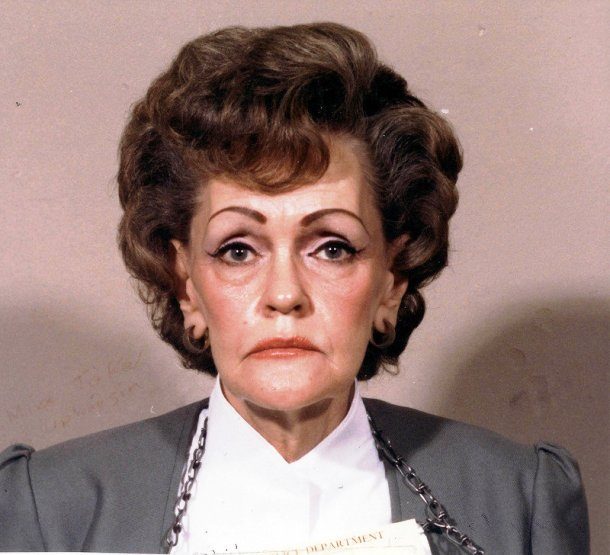Gertrude Baniszewski remains a name that resonates with infamy in the annals of American crime. Known for her role in one of the most harrowing cases of child abuse and murder, Baniszewski's story is both chilling and complex. Her actions in the mid-1960s led to a trial that shocked the nation, raising significant questions about cruelty, neglect, and the dark side of human nature. This article delves deep into the life and crimes of Gertrude Baniszewski, exploring the events that led to her notoriety and the lasting impact her case has had on society.
The case of Gertrude Baniszewski is often cited as one of the most egregious examples of abuse in the United States. Her involvement in the torture and death of Sylvia Likens, a 16-year-old girl left in her care, exposed a harrowing narrative of systematic cruelty. The trial that followed unveiled shocking details that not only captivated public attention but also spurred discussions on child protection laws and societal responsibilities. Despite the passage of time, the story of Baniszewski continues to be a point of reference for both legal scholars and advocates of child welfare.
As we explore the life and crimes of Gertrude Baniszewski, it is essential to understand the social and psychological dynamics that contributed to this tragic saga. From her troubled personal life to the circumstances that allowed such heinous acts to occur, this article aims to provide a comprehensive overview of Baniszewski's story. By examining her motivations and the implications of her actions, we gain insights into the complexities of human behavior and the critical importance of vigilance in safeguarding vulnerable individuals.
Table of Contents
- Biography of Gertrude Baniszewski
- What Led Gertrude Baniszewski to Infamy?
- The Baniszewski Family Dynamics
- The Sylvia Likens Case: A Tragic Tale
- What Happened During the Gertrude Baniszewski Trial?
- The Aftermath of the Trial: Societal Impact
- What Psychological Factors Influenced Gertrude Baniszewski?
- Legal Implications of the Baniszewski Case
- How Did the Media Portray Gertrude Baniszewski?
- Public Reaction to the Baniszewski Case
- The Lasting Legacy of Gertrude Baniszewski
- Are There Similar Cases to Gertrude Baniszewski?
- Lessons Learned from the Baniszewski Case
- Was Rehabilitation Possible for Gertrude Baniszewski?
- Conclusion
Biography of Gertrude Baniszewski
Born on September 19, 1929, in Indianapolis, Indiana, Gertrude Baniszewski's life was marred by struggles long before she became a notorious criminal. Her early years were characterized by familial instability and personal hardships, including a series of tumultuous relationships and financial difficulties. Despite these challenges, Baniszewski's life took a dark turn that would ultimately define her legacy.
| Full Name | Gertrude Nadine Baniszewski |
|---|---|
| Date of Birth | September 19, 1929 |
| Place of Birth | Indianapolis, Indiana, USA |
| Notable Crime | Torture and murder of Sylvia Likens |
| Trial Date | 1966 |
| Date of Death | June 16, 1990 |
What Led Gertrude Baniszewski to Infamy?
Understanding what led Gertrude Baniszewski to commit such heinous acts requires delving into her background and the circumstances surrounding her life. Baniszewski's upbringing was fraught with difficulties, including loss and instability. Her marriage to John Baniszewski, with whom she had several children, was marked by discord and separation, which only added to her struggles.
Financial instability played a significant role in Baniszewski's life decisions. Living in poverty, she took on boarders to make ends meet, which eventually led to the ill-fated arrangement with the Likens family. The combination of her personal hardships and the chaotic domestic environment created a volatile atmosphere that contributed to the tragic events that unfolded.
The Baniszewski Family Dynamics
The dynamics within the Baniszewski household were complex and often tumultuous. Gertrude Baniszewski was the mother of seven children, managing a household that was frequently in disarray due to financial and emotional stressors. The lack of a stable father figure and the pressures of raising a large family on limited resources further exacerbated the situation.
Baniszewski's relationship with her children varied, with reports suggesting a mixture of affection and authoritarian control. Her struggles with mental health and substance abuse also influenced her parenting style, creating an environment where neglect and abuse could occur unchecked. These dynamics played a crucial role in the events that led to her criminal actions.
The Sylvia Likens Case: A Tragic Tale
The case of Sylvia Likens is one of the most heartbreaking stories of abuse and neglect in American history. Sylvia and her sister, Jenny, were left in the care of Gertrude Baniszewski while their parents worked with a traveling carnival. This arrangement, intended to provide stability for the Likens sisters, instead exposed them to unimaginable cruelty.
Over a period of three months, Sylvia Likens endured brutal treatment at the hands of Baniszewski, her children, and other neighborhood youths. The abuse included physical beatings, starvation, and psychological torment, culminating in Sylvia's tragic death on October 26, 1965. The details of her suffering shocked the nation and highlighted severe lapses in child protection.
What Happened During the Gertrude Baniszewski Trial?
The trial of Gertrude Baniszewski and her co-defendants was a landmark case
You Might Also Like
Unveiling The Personal Life Of Alexa Grasso: Who Is Her Husband?Exploring The Family Life Of Fred Dryer: A Look Into His Children
Unveiling The Enigma: The Life And Influence Of Francie Schwartz
Exploring The Life And Relationships Of Omri Katz: Unveiling The Mystery Of Omri Katz's Wife
Exploring The Intrigue Surrounding Kordell Beckham's Feet: An In-Depth Look
Article Recommendations

